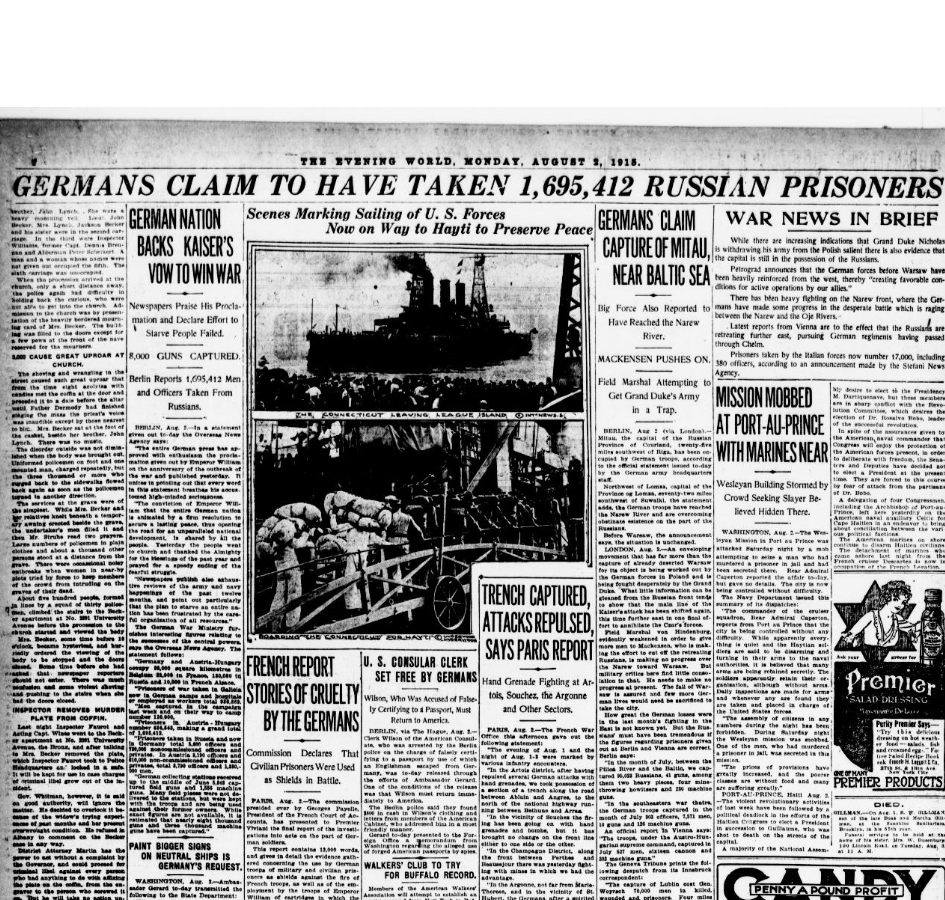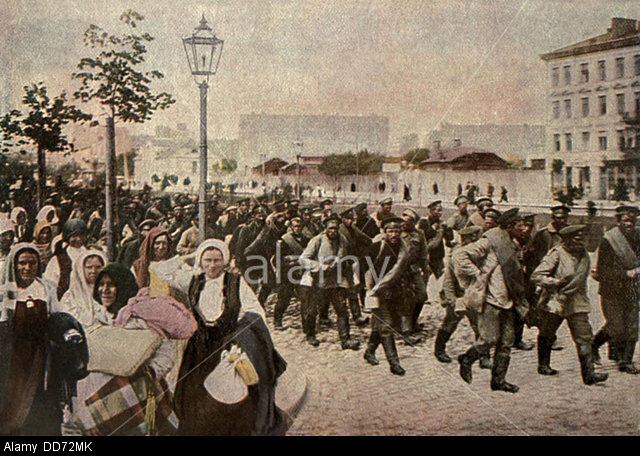War Spreads; Millions Die
Fight to the End, Kaiser Vows
Special to The Great War Project
(1-3 August) Kaiser Wilhelm, the leader of Germany, uses the occasion of the first anniversary of the outbreak of the war on August 2nd a hundred years ago, to proclaim his support for Germany’s continuing the war until victory. A headline in the New York newspaper, The Evening World reads: “German Nation Backs Kaiser’s Vow to Win War.”
Newspapers across Germany praise the Kaiser’s words. The German leader also declares the British effort to starve the people of Germany a failure.
From the beginning of the war a year ago, the British navy has blockaded Germany, in an effort to deprive it of key military supplies as well as food for the German civilian population.
The blockade has a powerful effect on the German people, stiffening their resistance and strengthening their support for the war.
“The blockade did more than any other action to radicalize the conflict,” writes historian Alexander Watson. “Most damaging was the blockade’s erosion of the distinction between combatants and non-combatants.”
“The German reaction to these measures was apoplectic,” reports Watson. “The British were denounced for waging a ‘starvation war.’”
In the summer of 1915, a century ago and a year into the war, “the stalemate in the West,” writes historian Martin Gilbert, “was in contrast to movement in the East.”
Until this moment in the war, the Russians remain in control of much of Poland, including the city of Warsaw.
But that picture of the Eastern Front is about to change. The Russians endure such relentless pounding from the German army that Warsaw and Poland are slipping from the Russian grip.
The German offensive “stuns the Russian forces,” writes historian Michael Neiberg. In the face of it, the Russians collapse. “It’s a massive Russian defeat,” Neiberg reports.
The Russians see the Germans reinforcing their troops in this zone of the fighting.
On August 2nd, the front page of the New York Evening World reports that there are signs the Russian command is preparing to withdraw from key Polish territory, including Warsaw, that is in the hands of the Russians until now.
The Russians begin their withdrawal to the east, but they are unable to retreat in an orderly fashion.
The withdrawal soon descends into chaos.
In the same newspaper, on the anniversary of the beginning of the war, the headline reads: Germans Claim to Have Taken 1,695,412 Russian Prisoners.


